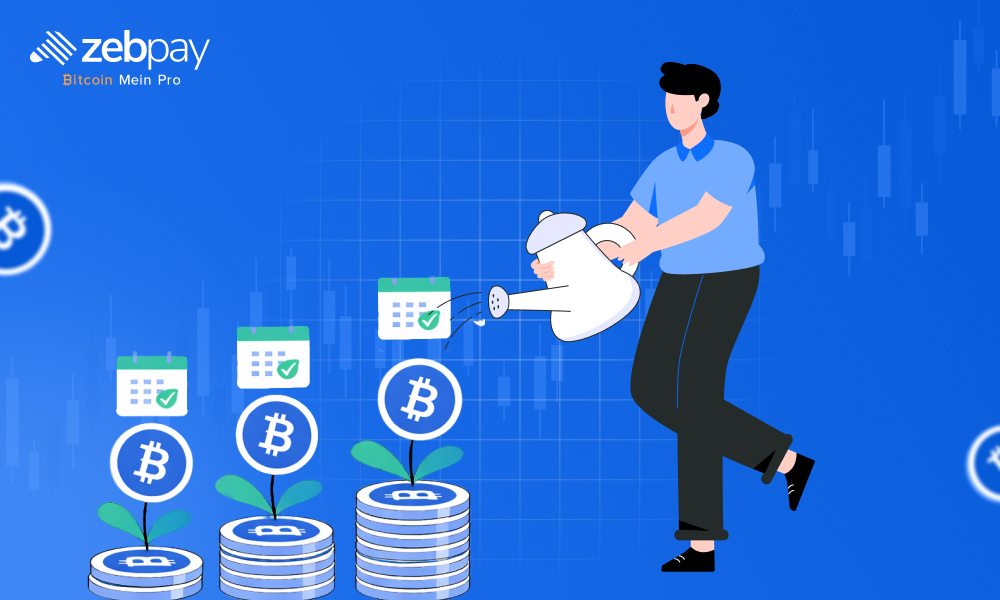16 December 2020 | ZebPay Trade-Desk
A smart contract is a self-enforcing piece of software that is managed by a P2P network of computers. Smart contracts are essentially management tools that provide a coordination and enforcement framework for agreements between network participants, without the need of traditional legal contracts. They can be used to formalize simple agreements between two parties, the bylaws of an organization, or to create tokens.
Smart contracts work on an ‘If-Then’ principle. The ownership of the asset will only be passed on to the buyer, if the agreed amount of money is sent through an integrated system, which authorizes the transaction. Hence, one can conclude that smart contracts are self-executing contracts. The terms of the agreement between buyer and seller directly written into lines of code. The code is integrated and runs across distributed, decentralized blockchain networks. The code controls the execution, and ensures that the transaction is both recordable and irreversible. The key to its success is its ability to allow trusted transactions and agreements to be carried out among disparate, anonymous parties without the need for a central authority, legal system, or external enforcement mechanism.
How do Smart Contracts Work?
Smart contracts were first proposed in 1994 by Nick Szabo, an American computer scientist . Szabo defined smart contracts as computerized transaction protocols that execute terms of a contract. His aim was to enable the functionality of electronic transaction methods and make it conducive to applications across digital realms.
These contracts have a simple way of working, enabling speed, accuracy and trust among mutually exclusive parties. One must just drop a required amount of a cryptocurrency into the smart contract, and the escrow should automatically drop into your account. All the rules and penalties are not only pre-defined by smart contracts but are also enforced by them. A smart contract usually tends to be interdependent and works on its own, but it also has the ability to be chained to other contracts. While this might increase complexity, it does ensure that the infrastructure is more secure. Simply put, the successful completion of one particular smart contract can trigger the start of another one, and so on.
In order for these contracts to function properly and fulfil their purpose, they have to operate within a specific suitable environment. Firstly, the environment must enable the use of public-key cryptography. This allows for the users to sign off for the transaction using their unique, specially generated cryptographic codes. Majority of the currently existing cryptocurrencies are using such systems to facilitate transactions. Secondly, they require an open and decentralized database. This is crucial, as it ensures that all parties of the contract can be entirely trusted, and the process can be automated. Moreover, the entire environment itself has to be decentralized for the smart contract to be implemented. Blockchains, especially the Ethereum Blockchain, are the perfect environments for smart contracts. Lastly, from a technical standpoint, the source of digital data used by the smart contract has to be completely reliable.
Pros and Cons of Smart Contracts
Smart contract infrastructure has made digitizing securities a reality. There are some distinct and crucial benefits that smart contracts provide, and they are mentioned below, briefly.
- Fractional Ownership – In the case of security tokens, it is possible for investors to gain fractional ownership of single high-value assets. The programmability of the smart contract enables issuers to break up a singular asset into infinite fragments, each of which may then be invested into by separate investors.
- Real – Time Exchange – Using smart contracts, the trading of digital securities can be completed without the majority of existing intermediaries (middle men), and within the same day, in almost real-time.
- Increased Transparency and Immutability – When hashed into a public blockchain such as Ethereum, copies of the transaction details of the digital securities are distributed and available to the entire network. Moreover, the process is highly autonomous, based on mathematical proof and pre-defined conditions, and again – ruling out the need for intermediaries. Hence, it significantly brings down the risks of frauds, manipulations, as well as, the costs involved in the traditional processes.
- High Degree of Automation – First, and most obviously so, automating the process of trading securities significantly reduces the time. Moreover, by eliminating a range of overheads, such as financial analysis charges, automation can significantly reduce costs, both for the securities issuer and buyer.
Despite the many advantages of using smart contracts to digitize securities, there are a few drawbacks, technical and otherwise, which act as a major challenges as this infrastructure continues to be developed.
- Cases of Faulty Codes – A crucial security concern of using smart contracts is the possibility of bugs in the contract itself. owing to the “immutability” of the Blockchain technology, cannot be removed. Even when they can, the process is highly cost and resource-intensive.
- Scalability – Presently, there exists no Blockchain which is optimized to handle the degree of through-put necessary to facilitate the flawless use of smart contracts for the digitization of securities and, most importantly, for trading in the same. Moreover, most existing blockchains use PoW, which is a resource-intensive consensus mechanism. So, even in this regard, existing Blockchains have limited scalability, as this is directly proportional to a massive increase in resource requirements.
- Complexity – Ethereum, the most commonly used smart-contract creation platform at present, levies a fee, known as Gas Limit, for transactions on its platform. As the cost is dependent upon the lines of codes to be executed, a rise in complexity of the contract also means a rise in the costs involved, both for testing and executing the contract. This not only limits the complexity of contracts but also hampers their security as they cannot be properly tested. Making things worse, there’s a cap on gas usage, meaning that transactions might be prematurely halted if the executor runs out of gas.
Conclusion
To conclude, it can be said that tokenization of digital securities indeed has the potential to transform the future of the finance sector, among others. Yet, to do so, the Blockchain community must be able to come up with efficient solutions to the existing issues which are highly detrimental to the security, as well as, adaptability. As many have pointed out, there might be the need for developing Blockchains, optimized solely to digitize securities using smart contracts.
References:
Disclaimer :
This report is not intended to be relied upon as advice to investors or potential investors and does not take into account the investment objectives, financial situation or needs of any investor. All investors should consider such factors in consultation with a professional advisor of their choosing when deciding if an investment is appropriate. The Company has prepared this report based on information available to it, including information derived from public sources that have not been independently verified. No representation or warranty, express or implied, is provided in relation to the fairness, accuracy, correctness, completeness or reliability of the information, opinions or conclusions expressed herein. This report is preliminary and subject to change; the Company undertakes no obligation to update or revise the reports to reflect events or circumstances that arise after the date made or to reflect the occurrence of unanticipated events. Trading & Investments in cryptocurrencies viz. Bitcoin, Bitcoin Cash, Ethereum etc.are very speculative and are subject to market risks. The analysis by Author is for informational purposes only and should not be treated as investment advice.





